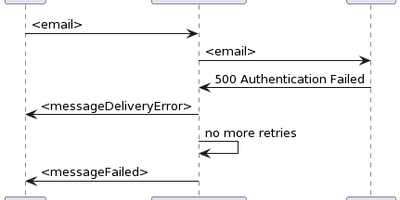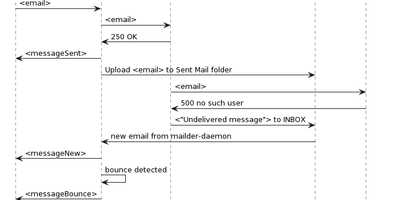Bounces in Message Listings
When listing messages in the Sent Mail folder, EmailEngine checks for bounces associated with each listed message. If a bounce is detected, it is included in the message entry as a bounces array.
Here’s an example message listing that includes bounce information:
{
"id": "AAAAAgAAAZ0",
"uid": 413,
"date": "2021-11-28T10:17:27.000Z",
"size": 839,
"subject": "Example message",
"from": {
"name": "Sender Name",
"address": "sender@example.com"
},
"to": [
{
"name": "",
"address": "failed.recipient@example.com"
}
],
"messageId": "<4dbe4a40f37e9c2ba5b25912bc7c8997@example.com>",
"bounces": [
{
"message": "AAAAAQAABWw",
"recipient": "failed.recipient@example.com",
"action": "failed",
"response": {
"message": "550 5.1.1 <failed.recipient@example.com>: Recipient address rejected: User unknown in relay recipient table",
"status": "5.1.1"
},
"date": "2021-11-28T10:17:29.722Z"
}
]
}

